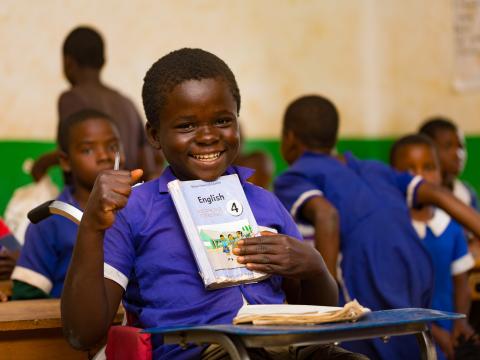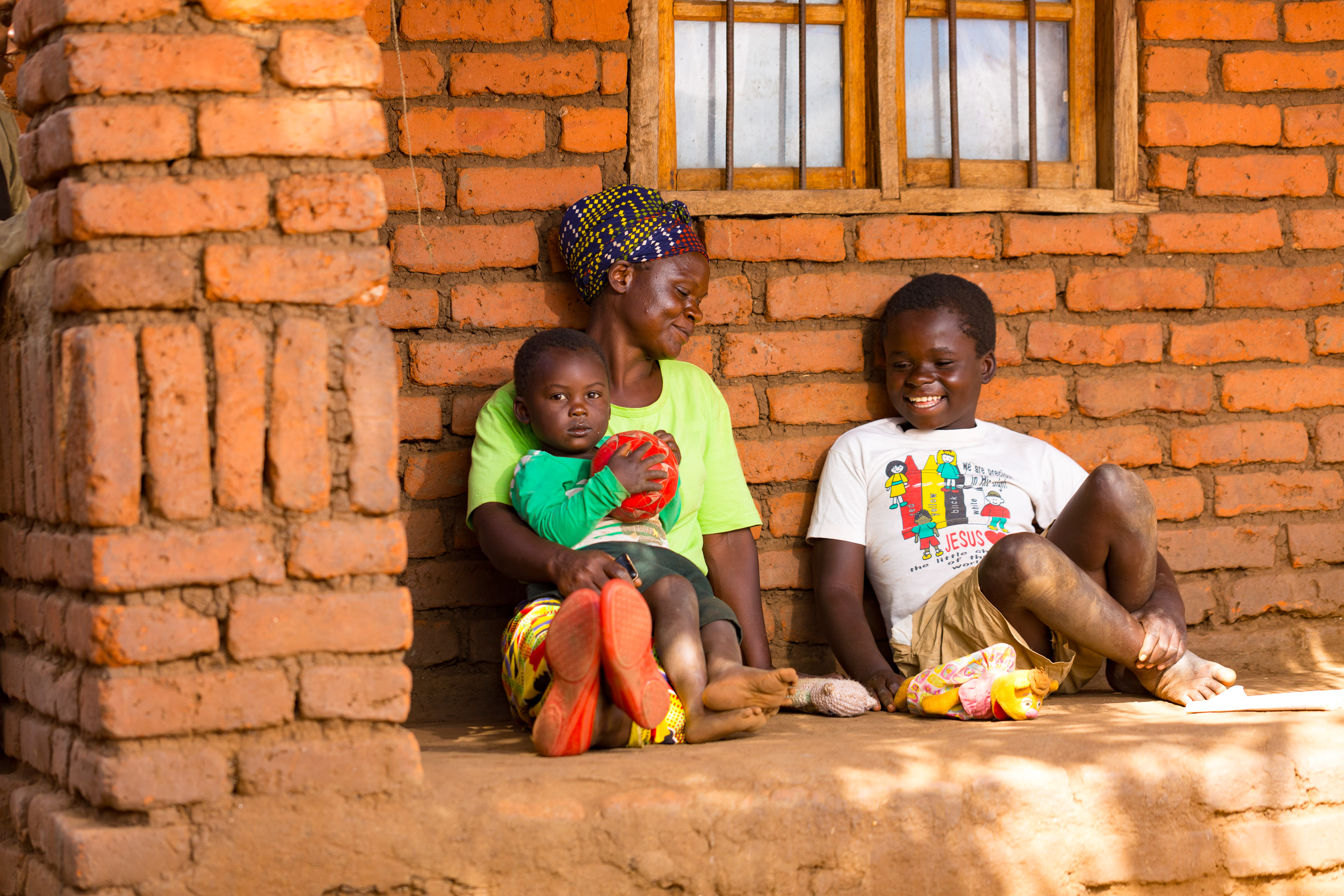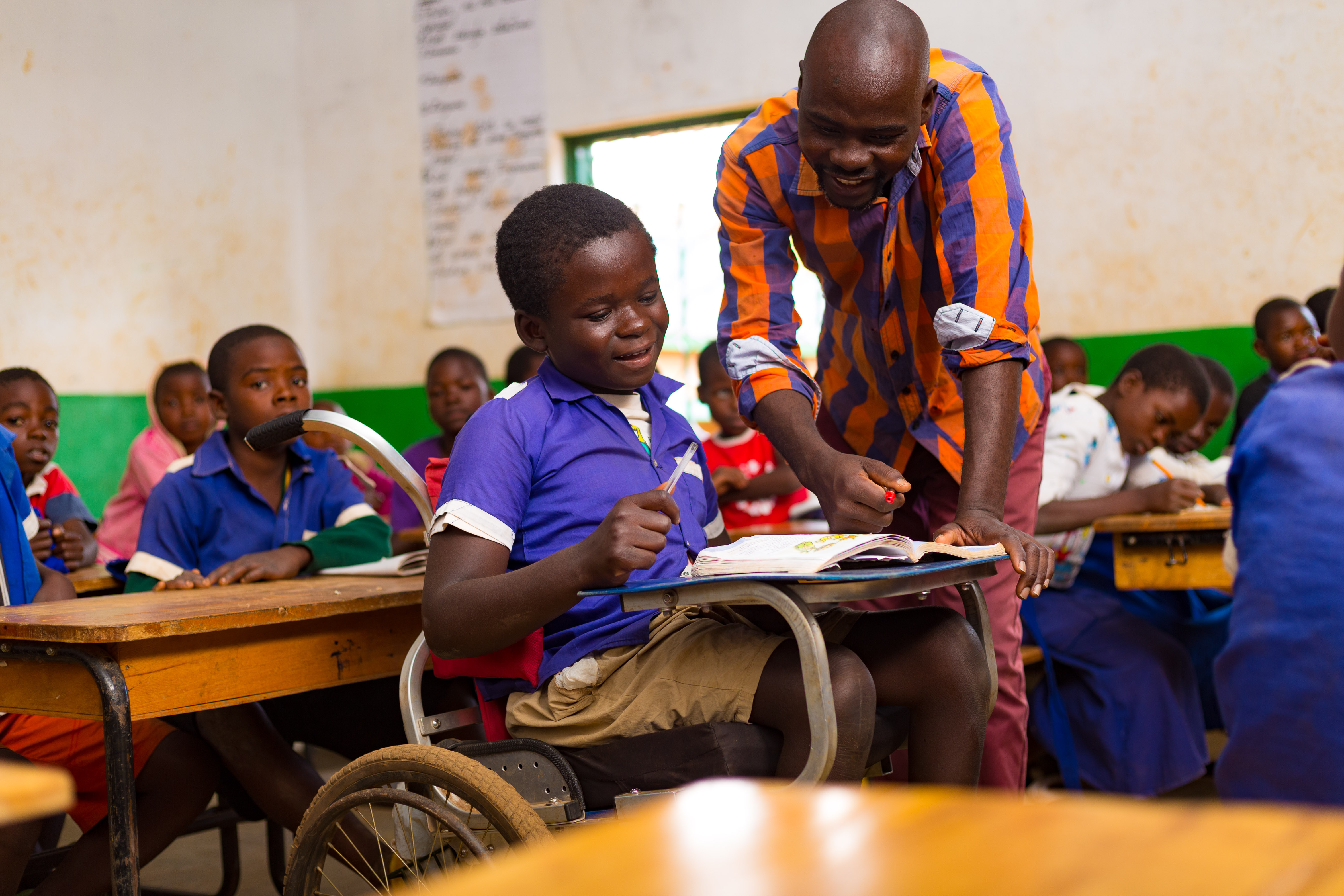A New Wheelchair, A New Chapter: How 15-year-old Chancy Is Thriving in School

Chancy Endeleni, 15, is the second born of four children raised by Mulitani Seketeni in the Mayani Area Program (AP) of Dedza District. Like most children, Chancy’s early health appeared normal. However, at just nine months old, his mother noticed abnormal head growth, prompting her to seek medical attention.
According to his mother, Chancy was diagnosed with hydrocephalus, a condition in which excess fluid accumulates in the brain, causing the head to enlarge. As a result, Chancy could not sit or perform basic movements independently until the age of five. His condition also caused speech delays.
“We were referred from Dedza District Hospital to Kamuzu Central Hospital in Lilongwe, where I was told it was too late for surgery. Physiotherapy was the only option to improve his wellbeing". Seketeni explains.

“My world shattered. I lost hope and to make matters worse, his father divorced me. I became Chancy’s only hope, so I had to be strong for him,” she recalls
Over time, Chancy made gradual progress. He eventually learned to sit on his own, and soon after, began crawling. In 2021, his mother enrolled him at Kantedza Primary School, where he is currently in fourth grade. Initially, Seketeni had to carry him on her back to and from school, an exhausting routine.
Everything changed when World Vision Malawi (WVM), in collaboration with the Malawi National Association for the Disabled (MANAD), introduced the Able to Thrive project. This initiative aims to support over 10,000 children with various disabilities by 2027, promoting a more inclusive education system.
Through the project, Chancy received a wheelchair, easing his mobility challenges and relieving his mother of the physical burden.

“He can now interact with his peers, and the wheelchair has given him a sense of independence. I can go to the farm without worry, and I am hopeful that his dream of becoming a teacher will come true. " narrated Seketeni.
Chancy’s teacher, Abel McBeston, also attests to his remarkable improvement saying, if not for the wheelchair, Chancy would have dropped out of school long time ago.
Said McBeston; “Chancy is now able to respond to oral questions in class, although he still struggles with writing.”
McBeston has also appealed to the project to provide additional facilities tailored to the needs of special-needs learners like Chancy to support their academic progress.
The Able to Thrive project is currently being implemented in the districts of Dowa, Kasungu, Ntchisi, Mzimba, and Dedza.